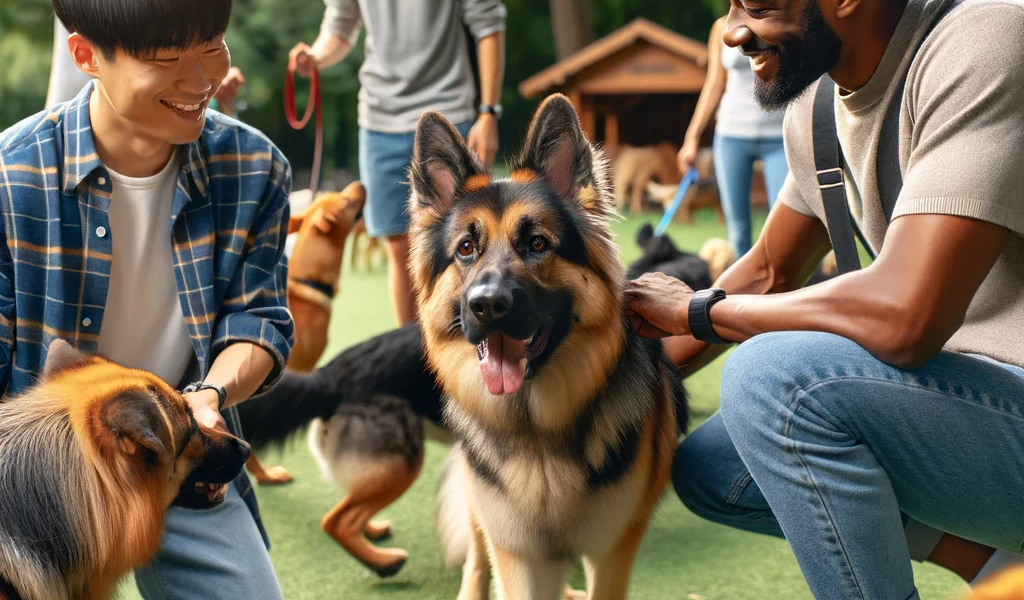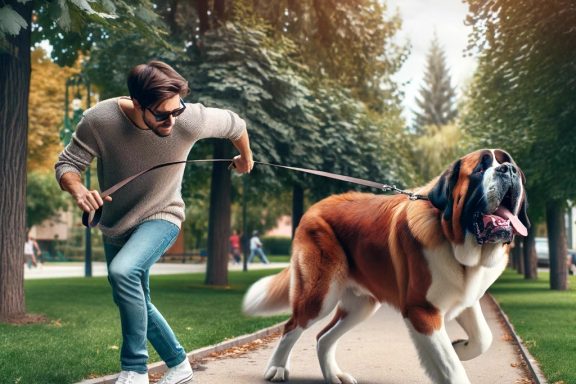German Shepherd Dogs are renowned for being excellent family pets and are generally easy to train.
However, they possess certain innate characteristics and instincts that should be considered during training.
Understanding the specific needs and traits of the breed is crucial when training a German Shepherd Dog (GSD).
Read on to discover essential tips and strategies!
Key Training Tips for German Shepherd Dogs
There are various dog training methods, but positive reinforcement, which focuses on building a strong bond between you and your dog, is particularly effective.
Below are some effective training strategies for German Shepherds:
Understand the Traits of a German Shepherd
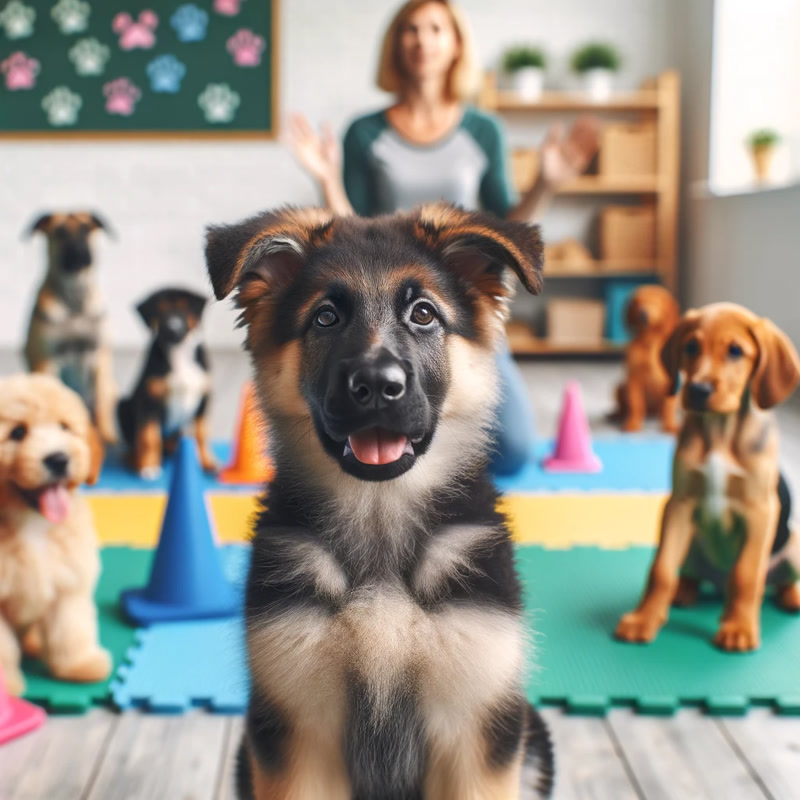
German Shepherds are known for their intelligence.
They are quick learners and thrive on challenges, making them well-suited for training and learning new skills.
They are also known for their loyalty and protective nature.
These dogs are active and need plenty of physical and mental stimulation to avoid boredom and destructive behaviors.
They excel in activities like agility, tracking, and obedience training.
Start with Basic Training and Socialization
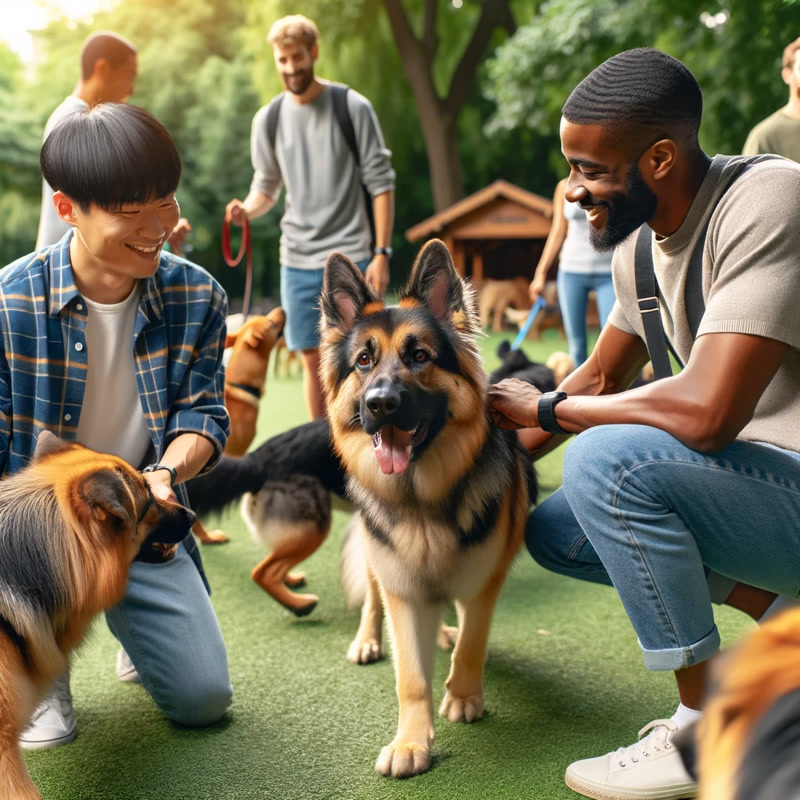
Both basic training and socialization are crucial. Basic commands such as sit, stay, come, and leash walking are essential.
German Shepherds, being particularly intelligent, often excel at obedience training.
Early socialization is also critical, exposing your dog to different people, animals, and environments.
Use Positive Reinforcement

Positive reinforcement is an effective way to train German Shepherds, as it builds trust and strengthens your bond.
Rewards can include treats, praise, playtime, clicker training, and “life rewards.”
It’s important to use positive reinforcement consistently and immediately after the desired behavior.
Avoid Punishment-Based Training
Punishment-based training is ineffective and can create fear and anxiety in dogs.
Focus on positive reinforcement and building a trusting relationship instead.
Keep Training Sessions Consistent Yet Short
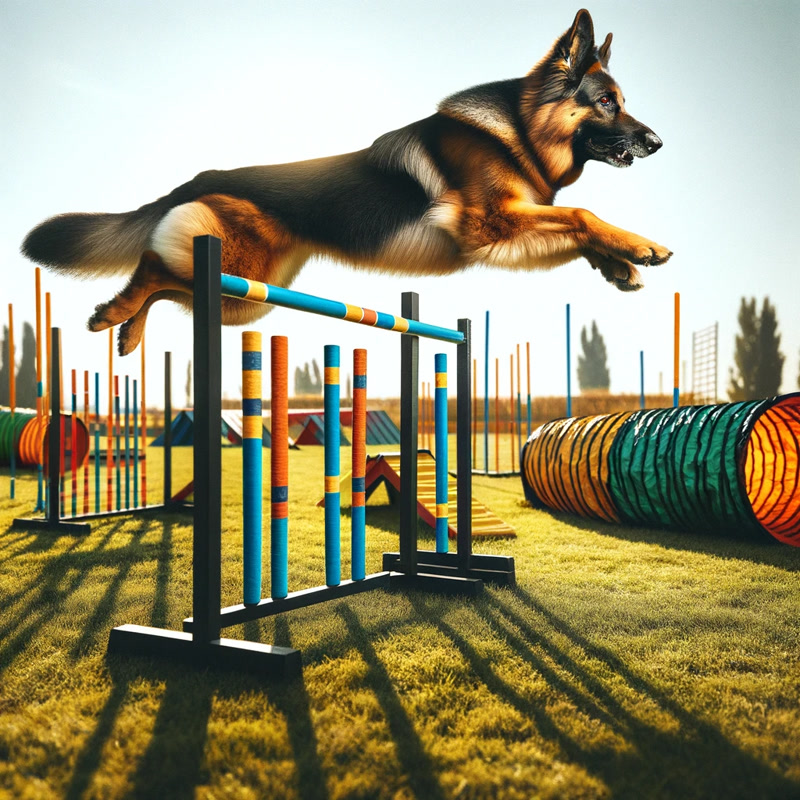
Consistency is key in training a German Shepherd.
However, training sessions should be brief and focused, as dogs have limited attention spans.
Provide Physical and Mental Stimulation
German Shepherds need both physical exercise and mental stimulation.
Puzzle toys, agility training, changes in scenery, and interactive play are great ways to challenge your dog mentally.
Seek Professional Help if Needed
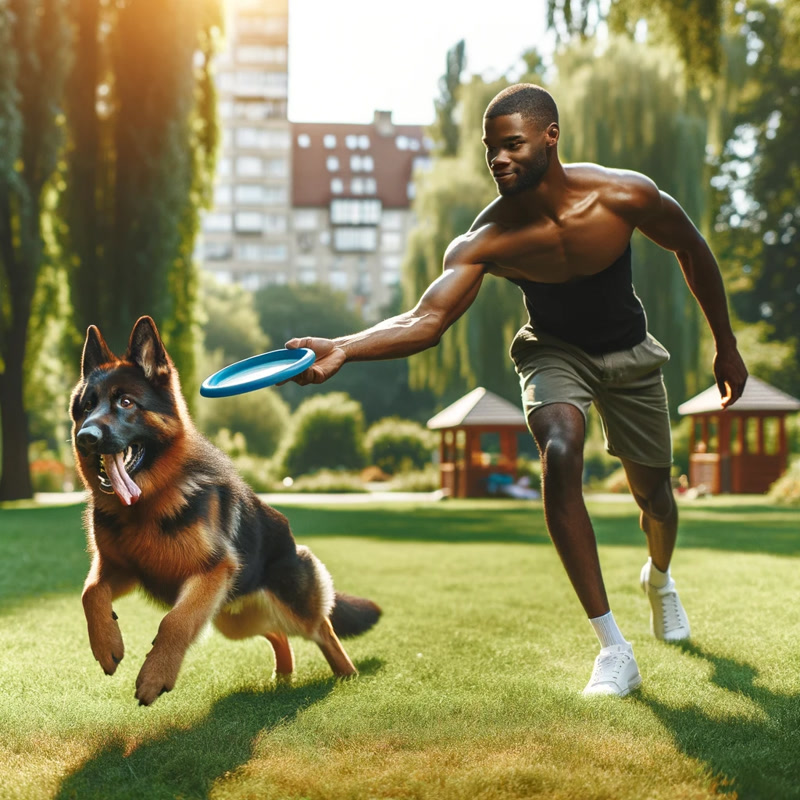
If you feel inexperienced or unable to provide the necessary training, seek the assistance of a professional trainer.
A well-trained and well-behaved German Shepherd can be an excellent family pet.
Proper training is an integral part of responsible dog ownership.
Do you have other training tips for German Shepherd dogs? Share them below!

